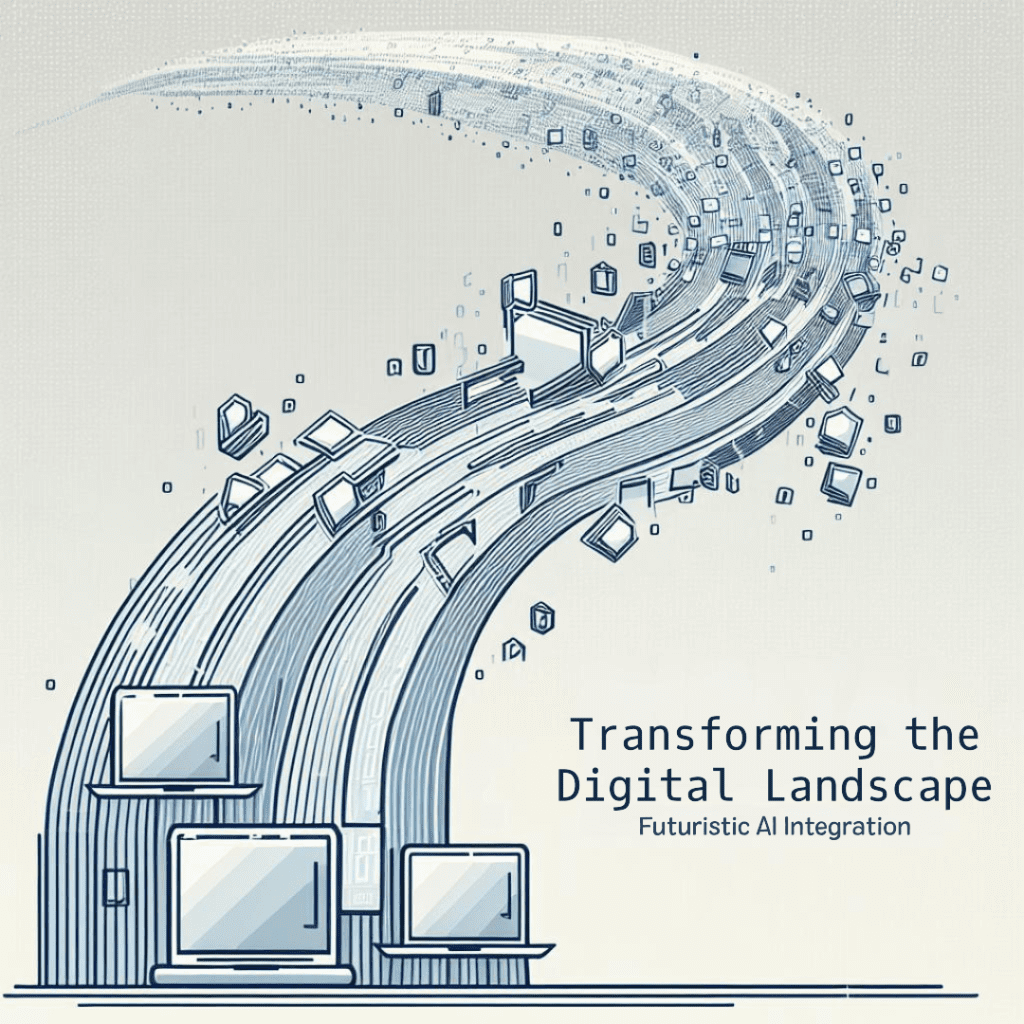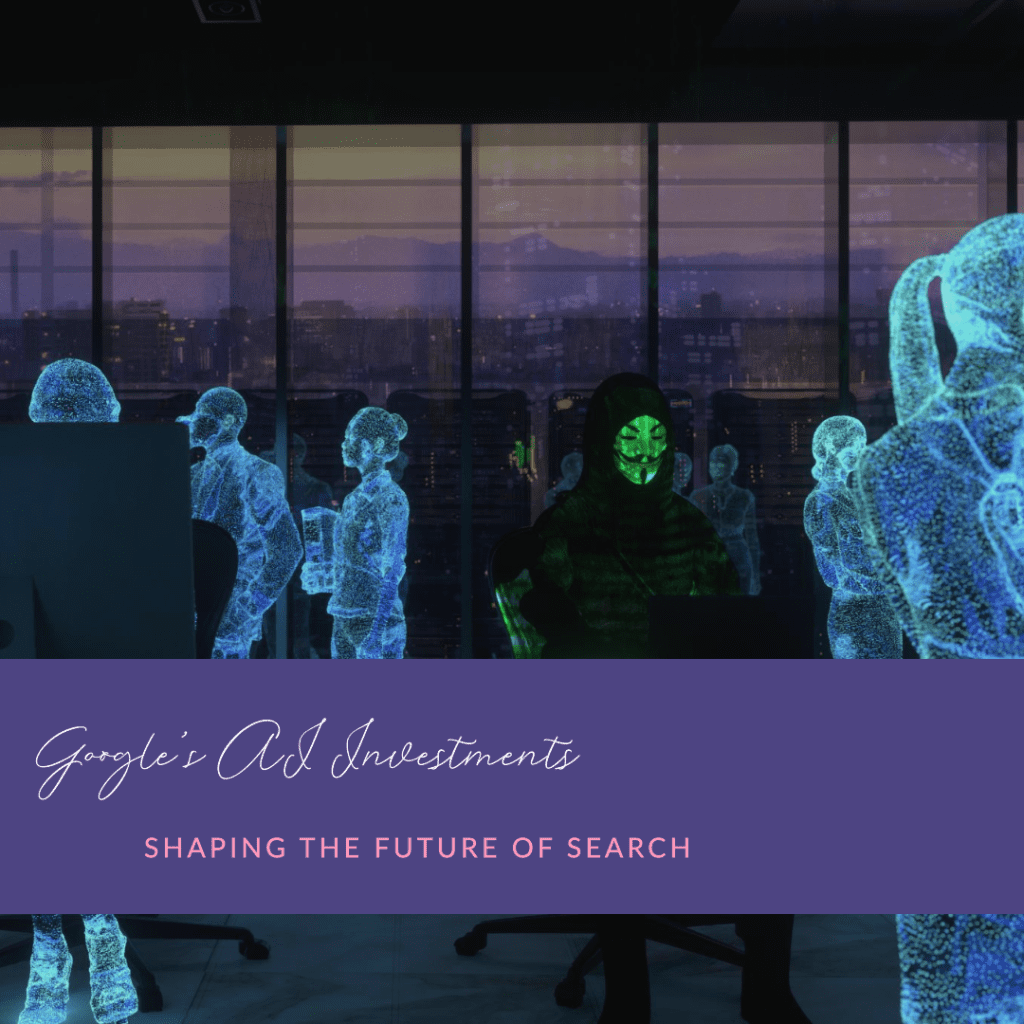
The digital landscape is undergoing a significant transformation fueled by Artificial Intelligence (AI). Search engines, the cornerstones of information access online, are at the forefront of this evolution. Google, the leading search engine, is heavily invested in AI research and development, prompting many to wonder how AI will reshape the way we search for information in the future. This article explores a plausible roadmap for Google’s future with AI integration, considering its potential impact on search behavior, user experience, and the overall health of the open web.
Understanding the Shift: AI and Search
Google’s search engine has traditionally relied on complex algorithms to crawl, index, and rank web pages based on relevance and user intent. However, AI introduces a new layer of intelligence. AI-powered search engines can potentially understand natural language queries more effectively, analyze user search history and preferences, and deliver personalized search results. This could lead to a more intuitive and user-friendly search experience, but it also raises questions about potential bias and the future of organic search traffic.

A Gradual Evolution: Google’s AI Integration Roadmap
Moving beyond speculation, let’s delve into a more realistic roadmap for Google’s AI integration. This roadmap envisions a gradual and balanced evolution, where AI enhances Google’s services without completely displacing traditional search experiences.
Here’s a breakdown of the potential timeline:
- Short-Term (2024-2026):
- Introduction of AI Overviews: Google will likely continue to roll out AI-driven overviews in search results. These overviews aim to provide users with summaries and key information directly within the search results page, potentially featuring voice assistants or interactive elements.
- Gradual Shift in Search Results: As AI overviews become more prevalent, organic search results might move slightly lower on the page. However, organic links will remain crucial for users seeking in-depth information and diverse perspectives.
- Introduction of Web Actions: Google might introduce “web actions” that allow users to perform actions like making purchases, scheduling appointments, or contacting businesses directly through the search interface. These actions would leverage AI for a seamless user experience.
This initial phase focuses on enhancing user experience with AI-powered features while still maintaining the core functionality of search engines. Stay tuned for the next section where we’ll explore the medium-term implications of Google’s AI roadmap.
The Balancing Act: Medium-Term (2026-2030)
The medium-term marks a period of potential consolidation and refinement for Google’s AI integration. Here’s a closer look at what we might expect:
- Expansion of AI Capabilities: Google’s AI overviews will likely become more sophisticated, incorporating richer data sources and allowing for more complex interactions. Imagine AI overviews that summarize financial reports, compare product features, or even answer open-ended questions with relevant information.
- Wider Adoption: AI-driven features are likely to become standard across a wider range of queries. However, this doesn’t necessarily mean the end of organic search results. Many users still value the ability to explore diverse perspectives and conduct independent research through traditional links.
- Evolution of Web Traffic: The overall volume of traditional web traffic might decline somewhat as users become more comfortable with AI overviews and web actions. However, the internet is known for its adaptability. New content formats and monetization strategies could emerge to cater to user preferences and changing search behavior.
- Web Actions and Monetization: Google will likely continue to develop new revenue models around web actions. A potential approach could involve sharing a portion of ad revenue with content creators when their websites are accessed through these actions. This could incentivize content creation and maintain a healthy ecosystem.
The medium-term presents a crucial balancing act for Google. The company will need to strike a balance between leveraging AI to enhance user experience and search efficiency while ensuring the open web remains accessible and diverse.
Long-Term Vision: A Symbiotic Future (2030-2035)
The long-term vision for Google’s AI integration paints a picture of a symbiotic future where AI and traditional search coexist and complement each other. Here’s what this extended timeframe might hold:
- Pervasive AI: AI will likely become deeply integrated into all aspects of Google’s services. Imagine personalized search results that anticipate your needs, voice assistants that can handle complex tasks, and AI-powered tools that streamline information gathering and analysis.
- Advanced Interactions: Web actions will likely evolve to facilitate even more advanced interactions. Users might be able to conduct complex transactions like booking travel itineraries or negotiating contracts entirely through AI interfaces.
However, Google’s dominance won’t be absolute:
- Diversified Ecosystem: Other tech giants and startups are likely to introduce competitive AI and web interaction models, preventing Google from monopolizing the market. This competition will drive innovation and ensure a variety of user experiences.
- Open Web Resilience: The open web, though potentially evolving with new business models and decentralized technologies like blockchain, is likely to remain a cornerstone of the internet. Users will still have the option to explore information beyond the confines of Google’s curated environment.
A Collaborative Future
The long-term also suggests a shift towards a more collaborative internet landscape:
- Regulatory Landscape: Continued regulatory oversight from governments worldwide will ensure that no single entity can dominate the internet entirely. We might see collaborative frameworks emerge where governments and tech companies work together to establish responsible AI practices and user protections.
- User Rights: Enhanced user rights and protections surrounding data privacy and digital interactions are likely to become standard. Users will have more control over their online experience and the data they share.
The Road Ahead
While the specific details remain speculative, the most plausible roadmap for Google’s future with AI integration suggests a gradual and balanced evolution. AI will undoubtedly play a significant role in shaping the future of search, but it won’t eliminate traditional search experiences entirely. The open web is likely to adapt and co-exist with AI-driven features, ensuring a diverse and dynamic internet landscape for users.
